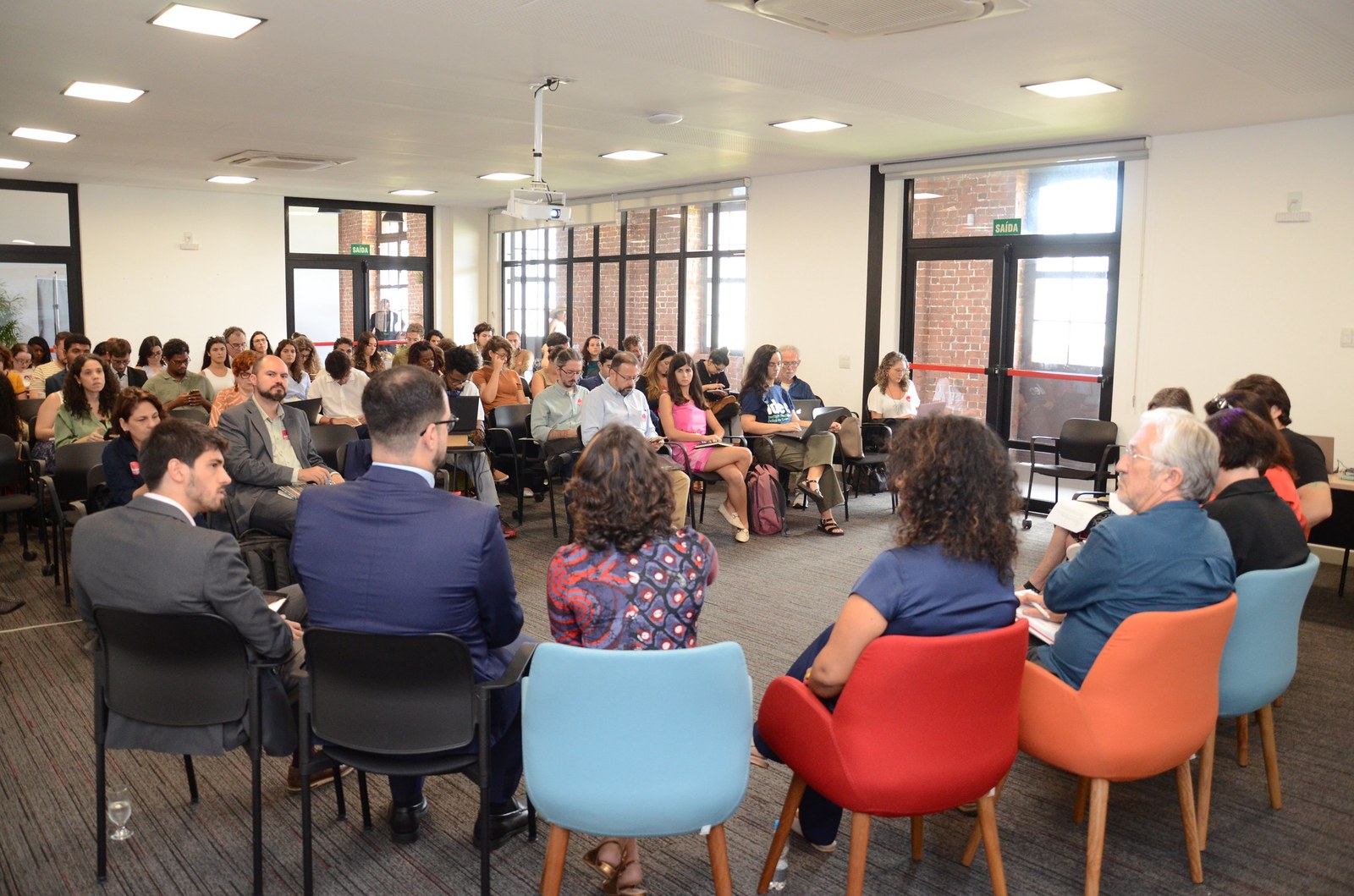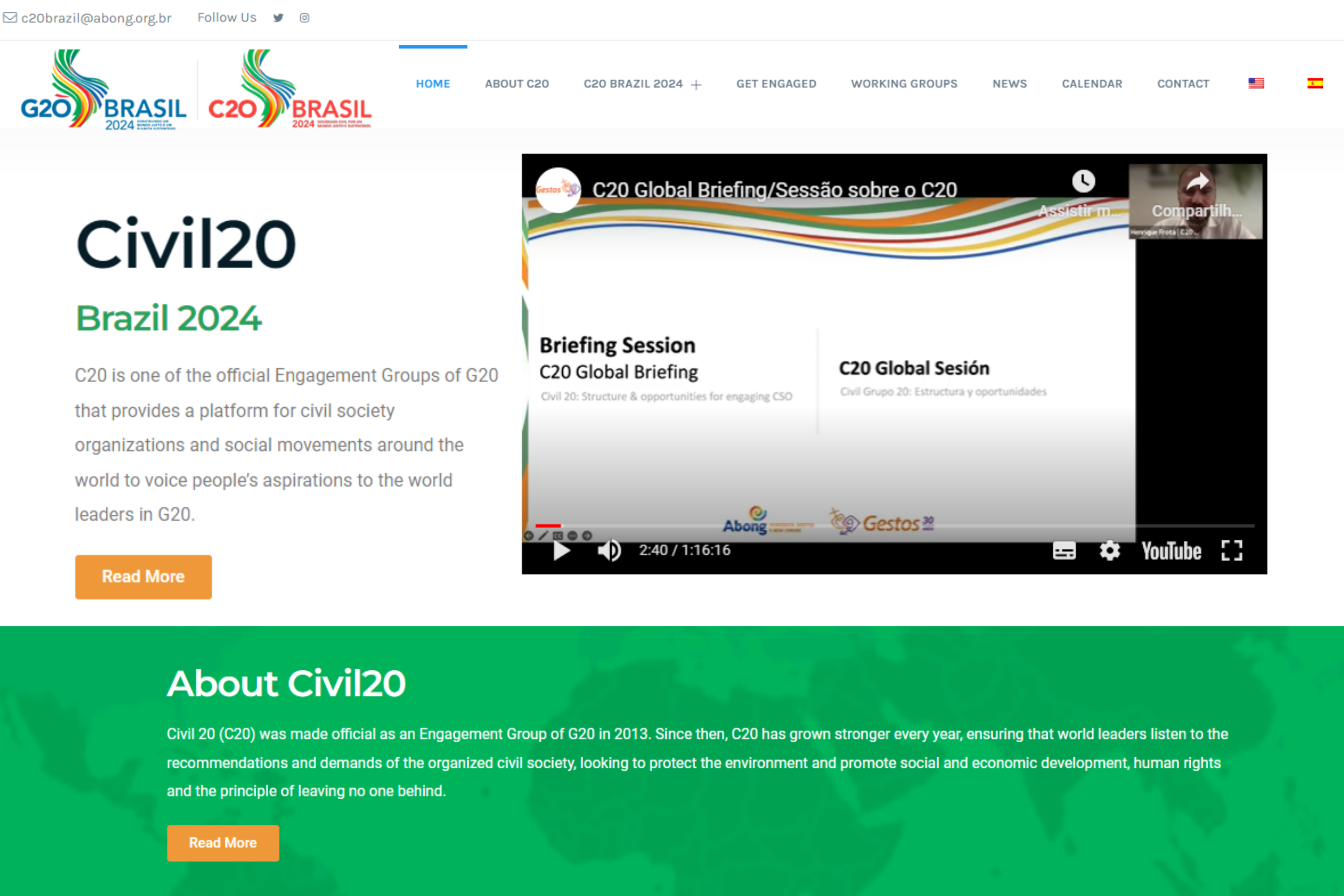Call for C20 applications: deadline for civil society organizations is January 31
Entities must respond with objectives and justification for appointment as representatives of each of the ten axes indicated by C20, the G20 Social civil society engagement group. Officially in this capacity since 2013, the C20 inaugurates this year a debate axis on Philanthropy and Sustainable Development

“How can I take part in the G20?” This common question—which may also be yours—already has an answer. The C20, the engagement group (EG) that represents civil society within the G20 Social, is open until January 31 (Wednesday) to applications by representatives who wish to participate in the debates.
Enrollment can be carried out on the C20 website, using a form that is available in three languages (Portuguese, English and Spanish), for registering basic information (name, country, gender) and a description of the entity's objectives and a justification for having been appointed a representative—both in around 500 characters.
“On the website, all civil society organizations around the world, not only from the countries that make up the G20, are invited to participate, to engage in the process of creating the recommendations that we will prepare,” said Alessandra Nilo, co-founder and coordinator of the NGO Gestos and C20 Sherpa in Brazil.
Applications can be made for collaboration across up to three C20 axes, as per the list below:
1) Fair, inclusive and anti-racist economies;
2) Food systems, hunger and poverty;
3) Environment, climate justice and fair energy transition;
4) Sustainable and resilient communities and disaster risk reduction;
5) Integrated health for everyone;
6) Education and culture;
7) Digitization and technology;
8) Women's rights and gender equality;
9) Philanthropy and sustainable development;
10) Democratic governance, civic space, combating corruption and access to justice (UN Sustainable Development Goal 16).

Each axis will be co-facilitated by two organizations–one international and one Brazilian–with relevant experience in the C20 and/or expertise in the thematic area. Gender equality, anti-racism, human rights and disabilities will be cross-cutting topics in the debates across the ten axes, from governance to recommendations. The ninth axis, Philanthropy and Sustainable Development, is a new addition to the engagement group, to be inaugurated this year.
Alessandra also highlighted the support of the Brazilian presidency of the forum to the G20 Social. “Our expectation is that, as civil society, we will be able to have much greater participation during the construction process and the recommendations of the G20 itself. The Brazilian presidency has been very open to the participation of civil society organizations, and we believe that, by the end of the year, we will really be able to establish a great practice in relation to the participation process that could even be followed by other countries,” she said.
The NGO Gestos (Gestos - Soropositividade, Comunicação e Gênero) has been working alongside the G20 since 2010 and, thus, has been part of the C20 since it officially became an engagement group in 2013. Last year, during the Indian presidency, Gestos began to join the troika of the EG, which this year is made up of, in addition to Brazil, by representation from the previous country (India) and the subsequent presidency (South Africa).